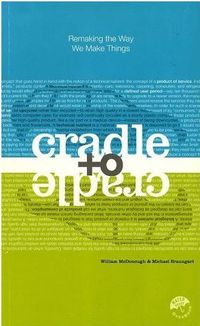

Purchase
Remaking the Way We Make Things
North Point Press
May 2002
On Sale: April 23, 2002
208 pages
ISBN: 0865475873
EAN: 9780865475878
Trade Size
Add to Wish List
Non-Fiction
A manifesto for a radically different philosophy and
practice of manufacture and environmentalism "Reduce, reuse, recycle" urge environmentalists; in other
words, do more with less in order to minimize damage. As
William McDonough and Michael Braungart argue in their
provocative, visionary book, however, this approach
perpetuates a one-way, "cradle to grave" manufacturing model
that dates to the Industrial Revolution and casts off as
much as 90 percent of the materials it uses as waste, much
of it toxic. Why not challenge the notion that human
industry must inevitably damage the natural world, they ask. In fact, why not take nature itself as our model? A tree
produces thousands of blossoms in order to create another
tree, yet we do not consider its abundance wasteful but
safe, beautiful, and highly effective; hence, "waste equals
food" is the first principle the book sets forth. Products
might be designed so that, after their useful life, they
provide nourishment for something new-either as "biological
nutrients" that safely re-enter the environment or as
"technical nutrients" that circulate within closed-loop
industrial cycles, without being "downcycled" into low-grade
uses (as most "recyclables" now are). Elaborating their principles from experience (re)designing
everything from carpeting to corporate campuses, the authors
make an exciting and viable case for change.
Comments
No comments posted.
Registered users may leave comments.
Log in or register now!
| 


 © 2003-2025 off-the-edge.net
all rights reserved Privacy Policy
© 2003-2025 off-the-edge.net
all rights reserved Privacy Policy